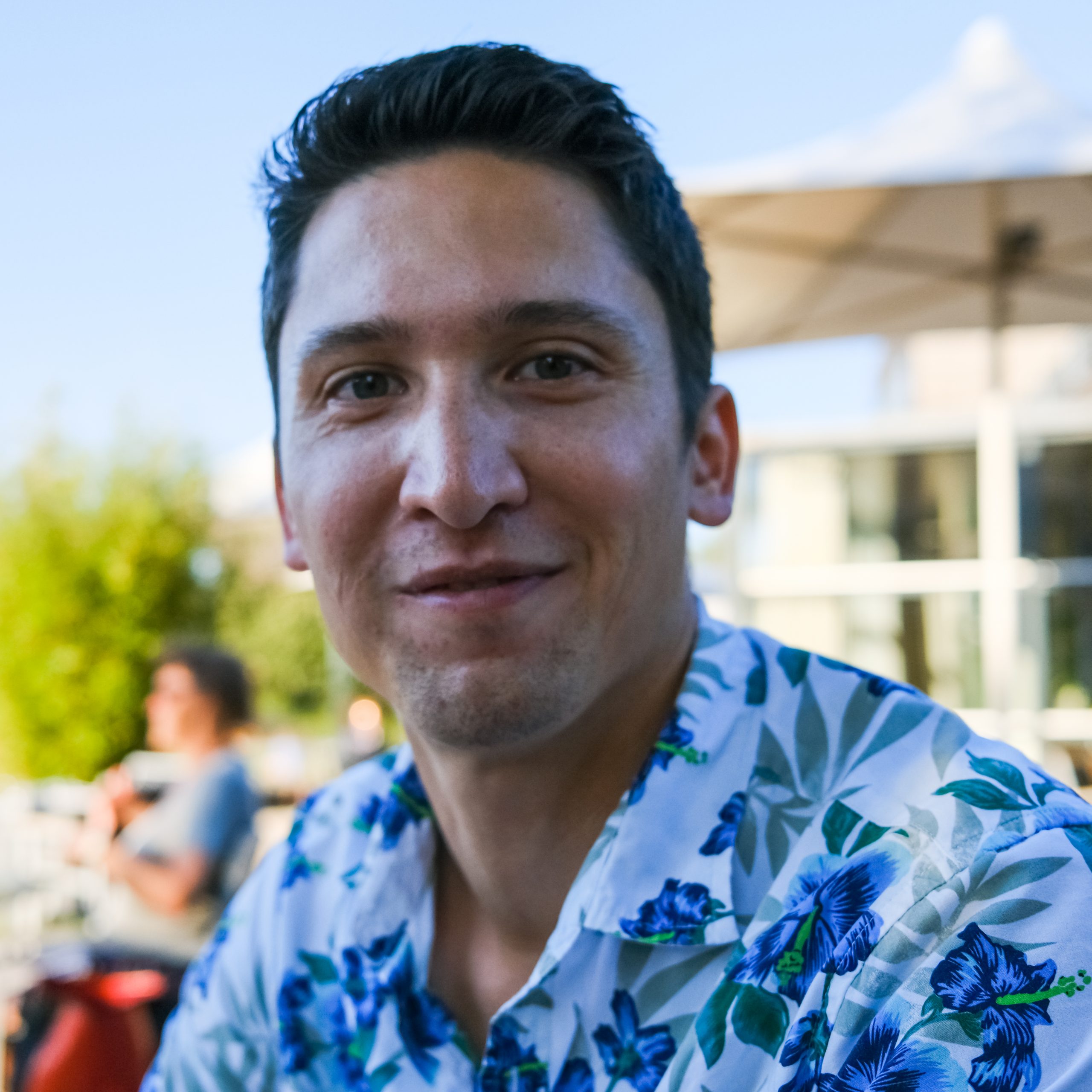
10 Aug AIGHD in Person: Logan Stuck
In June, AIGHD post-doc Logan Stuck was awarded the 2021 Amsterdam Tuberculosis Center (TBC) Seed Grant for his exceptional research proposal, ranked the highest amongst those received. “It is really exciting. This is actually the first research grant I have been awarded. I’ve been involved in reviewing and contributing to grant writing in the past, but I’ve never been the primary recipient. It is an honor and I look forward to getting to work on my research.” Though humble about his qualifications, Logan has a long history of bringing quantitative data into infectious disease research.
Dr. Logan Stuck majored in biology with a specialization in statistics during his undergraduate degree, then did a master’s in biostatistics, and served as a statistician consultant for two years in Minnesota prior to doing his PhD. Bringing numbers into life sciences may have been Dr. Logan Stuck’s forte, but his passion lied in global health due to formative experiences from his youth. “I was privileged enough growing up to be in a family that did lots of international travelling and one trip took me to Tanzania for quite some time. That trip was extremely important in my development. I just thought it was a fantastic experience.” After this decisive trip in middle-school, Logan returned to Tanzania years later during his undergraduate education. “There was a portion of the trip about a month long where we camped out near a rural hospital, and we had the opportunity to do whatever kind of research we wanted. I decided to do some research at the hospital.” Using hospital records from the year prior, Logan evaluated from where people were travelling against their risk of death at the hospital adjusted for illness or complication, revealing that the distance travelled was strongly correlated with the risk of death in the facilities. This highlighted the importance of physical space in relation to timely healthcare access.
Dr. Logan Stuck went on to pursue a PhD at the Louisiana School of Public Health and Tropical Medicine, where he focused on malaria surveillance and reactive case detection for four and a half years. After completing his doctorate, he moved to the Netherlands. “I started looking around for research organizations here in the Netherlands and AIGHD stood out as an organization that does the work that I am very interested in, so I reached out and went through the application process and acquired a post-doc position here.”
It was here at AIGHD that Dr. Logan Stuck made the switch from malaria research to tuberculosis (TB). “The interesting thing about switching fields from malaria to TB and switching from being in a PhD program to a post-doc position is that you are finding things out about yourself.” He and Prof. Frank Cobelens looked at the results of a TB prevalence survey from Zambia and saw potential for aggregating more data to use for characterizing sub-clinical tuberculosis and refining screening methods.
Merging prevalence survey datasets from Africa and Asia from the past decade―primarily as a way of assessing means of screening―has implications for diagnosing sub-clinical tuberculosis. Sub-clinical TB is a stage of active tuberculosis in which the signs and symptoms necessary to warrant a diagnostic evaluation are not present when screened for. Most commonly, this symptom screening protocol entails asking the patient if they have experienced two or more weeks of persistent cough. There may be a problem with this screening rule, and cases of tuberculosis that are going undetected and untreated are likely contributing to TB transmission. In a prevalence survey dataset from Zambia, many showed a wide range of symptoms without cough while presenting other symptoms like chest pain. “It’s a potentially invisible pool of infection that is spreading the disease. If we can better identify that group, then that could lead to reducing transmission.” In essence, this research is about using a large, multinational dataset to enhance our understanding of sub-clinical TB and to use that new knowledge to improve TB screening.
Commenting on this research initiative, Dr. Logan Stuck says, “I am very excited about it. The people have been great and it’s really an interesting and important field. I am excited to keep going down this path.” He looks forward to what the future holds for this quantitative research project: “It’s a challenge but it’s a welcomed challenge. This is a key moment in your career when you are using everything you learned in your education and applying it.” We would like to congratulate Logan for receiving this grant for this novel initiative and wish him the best of luck in his future research endeavors, whether they be related to tuberculosis, malaria, or something entirely new.
